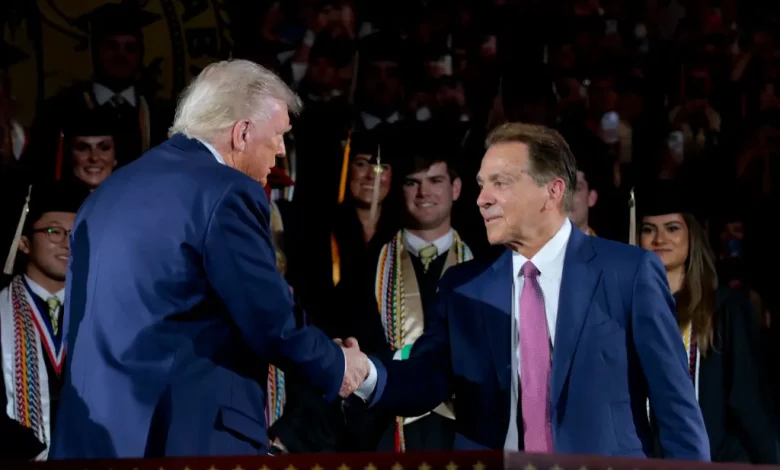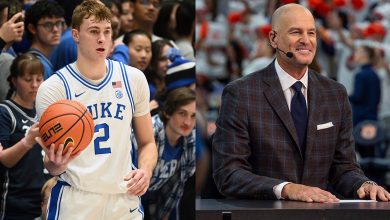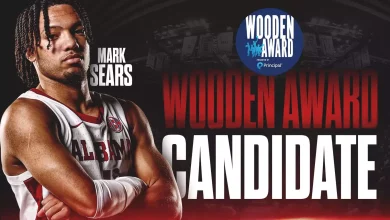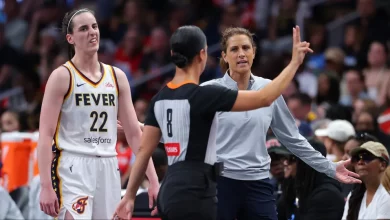President Donald Trump is now reportedly preparing an executive order to reform college athletics and fix NIL

After meeting with prominent figures such as Alabama football coach Nick Saban and U.S. Senator Tommy Tuberville, former President Donald Trump is reportedly in the process of preparing an executive order designed to address ongoing issues within college athletics, particularly those surrounding Name, Image, and Likeness (NIL) rights. The meeting, which brought together key stakeholders from both the sports and political worlds, has sparked discussions about the need for reform in the current state of college sports, where NIL has become a major factor affecting recruitment, competition, and fairness.
The current landscape of college athletics has been dramatically altered by the introduction of NIL deals, which allow athletes to profit from their personal brands while still participating in college sports. However, the lack of a unified and standardized framework for NIL agreements has led to various challenges, including disparities in how different schools and states regulate NIL deals. The result has been a situation where wealthy institutions or boosters can offer substantial financial incentives to athletes, skewing the recruitment process and creating an uneven playing field for teams of all sizes.
Nick Saban, one of the most successful and well-respected coaches in college football, has long been vocal about the need for changes to the current system. Saban has expressed concerns that the absence of uniformity in NIL regulations has caused chaos and unfair competition in college sports. He has argued that schools with more financial resources have an advantage over others, not necessarily because of superior athletic programs but due to their ability to offer more lucrative NIL deals to potential recruits. For Saban, this undermines the integrity of college sports, as it shifts the focus from athletic competition to financial power.
During the meeting with Trump and Tuberville, Saban emphasized that the lack of a national standard for NIL deals is one of the primary issues that needs to be addressed. He has called for federal legislation that would create a consistent framework for NIL agreements, preventing schools from using financial incentives as a way to “buy” athletes. Saban’s comments reflect a growing consensus within the college sports world that something must be done to restore balance and fairness to the system.
U.S. Senator Tommy Tuberville, a former college football coach himself, has also been a strong advocate for reforming NIL regulations. Tuberville has introduced the Protecting Athletes, Schools, and Sports (PASS) Act, a piece of bipartisan legislation that aims to establish national guidelines for NIL deals. The bill seeks to address concerns related to the commercialization of college athletics by introducing standardized NIL contracts, banning pay-for-play schemes, and ensuring that universities honor the original scholarship commitments made to student-athletes. The PASS Act, co-sponsored by Senator Joe Manchin, would create a more transparent and equitable system for NIL deals, reducing the disparity between wealthier and less-resourced programs.
The PASS Act is seen as a necessary step to level the playing field and ensure that college sports remain about athleticism, not just money. By establishing clear and uniform standards for NIL, Tuberville and his colleagues aim to prevent further disruption of the college sports landscape and safeguard the interests of both athletes and educational institutions. The proposed legislation has received support from various stakeholders in college athletics, who view it as a way to bring much-needed order and consistency to the NIL market.
In addition to these legislative efforts, the Trump administration has already taken steps to address some of the challenges posed by NIL. In February 2025, the Department of Education under Trump rescinded a controversial piece of guidance issued by the previous administration, which had suggested that NIL payments could trigger Title IX equal opportunity obligations. Title IX, a federal law that prohibits sex-based discrimination in educational programs, had been a key concern when it came to the issue of NIL deals, as some feared that allowing athletes to profit from their names and likenesses could create unequal opportunities for male and female athletes.
Trump’s Department of Education argued that the previous guidance was overly burdensome and lacked a solid legal foundation. By rescinding this guidance, the Trump administration aimed to provide greater clarity on the issue of Title IX and NIL, ensuring that schools could continue to offer NIL deals to athletes without the added complexity of Title IX implications. This move is part of the broader effort to create a regulatory environment that is more conducive to the growth and development of college athletics while also addressing concerns about fairness and equity.
As Trump prepares his executive order on college athletics and NIL reform, there is growing recognition that federal intervention is necessary to ensure that college sports remain competitive and fair. The lack of consistent regulation has left many institutions in a difficult position, where the financial influence of wealthy donors and boosters can overshadow the core values of college athletics. Without clear and standardized rules in place, schools are left to navigate a patchwork of state-level regulations that only add to the confusion and inequities in the system.
The proposed executive order would likely focus on several key areas of reform. First, it would aim to establish national standards for NIL agreements, ensuring that athletes are compensated fairly for their work while also preventing schools from using financial incentives as a means of attracting recruits. These standards would seek to create a level playing field for all schools, regardless of their financial resources, and prevent the bidding wars that have emerged as a result of the current system.
Second, the order would likely address issues related to transparency and accountability in the NIL market. With the rapid growth of NIL deals, there has been a lack of oversight in how these agreements are negotiated and executed. By introducing regulations that require greater transparency, the executive order could help ensure that athletes are fully informed about the terms of their NIL contracts and that schools are held accountable for any violations of the rules.
Finally, the order would likely seek to address concerns related to the overall integrity of college athletics. While NIL deals have given athletes more freedom to profit from their personal brands, there is concern that the emphasis on financial gain is detracting from the amateur spirit of college sports. The executive order may seek to strike a balance between allowing athletes to earn income and maintaining the values that have traditionally defined college athletics, such as teamwork, dedication, and a focus on education.
As discussions continue to unfold, it is clear that the issue of NIL reform is not going away anytime soon. The meeting between Trump, Saban, and Tuberville highlights the urgency with which many leaders in college sports are approaching the issue. With the growing influence of NIL deals on the recruitment and competitive dynamics of college athletics, it is likely that significant changes will be made in the coming months to create a more equitable and sustainable system for all involved.
the potential executive order being prepared by Donald Trump represents a critical step in the ongoing effort to reform college athletics and address the challenges created by NIL. The involvement of key figures such as Nick Saban and Tommy Tuberville underscores the importance of collaboration between political leaders, coaches, and athletes in finding solutions that benefit all stakeholders. As the landscape of college sports continues to evolve, it is essential that policies are put in place to preserve the integrity and fairness of the system, while also ensuring that student-athletes are able to thrive both academically and financially.









